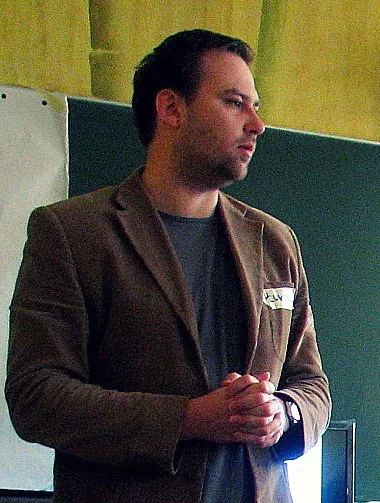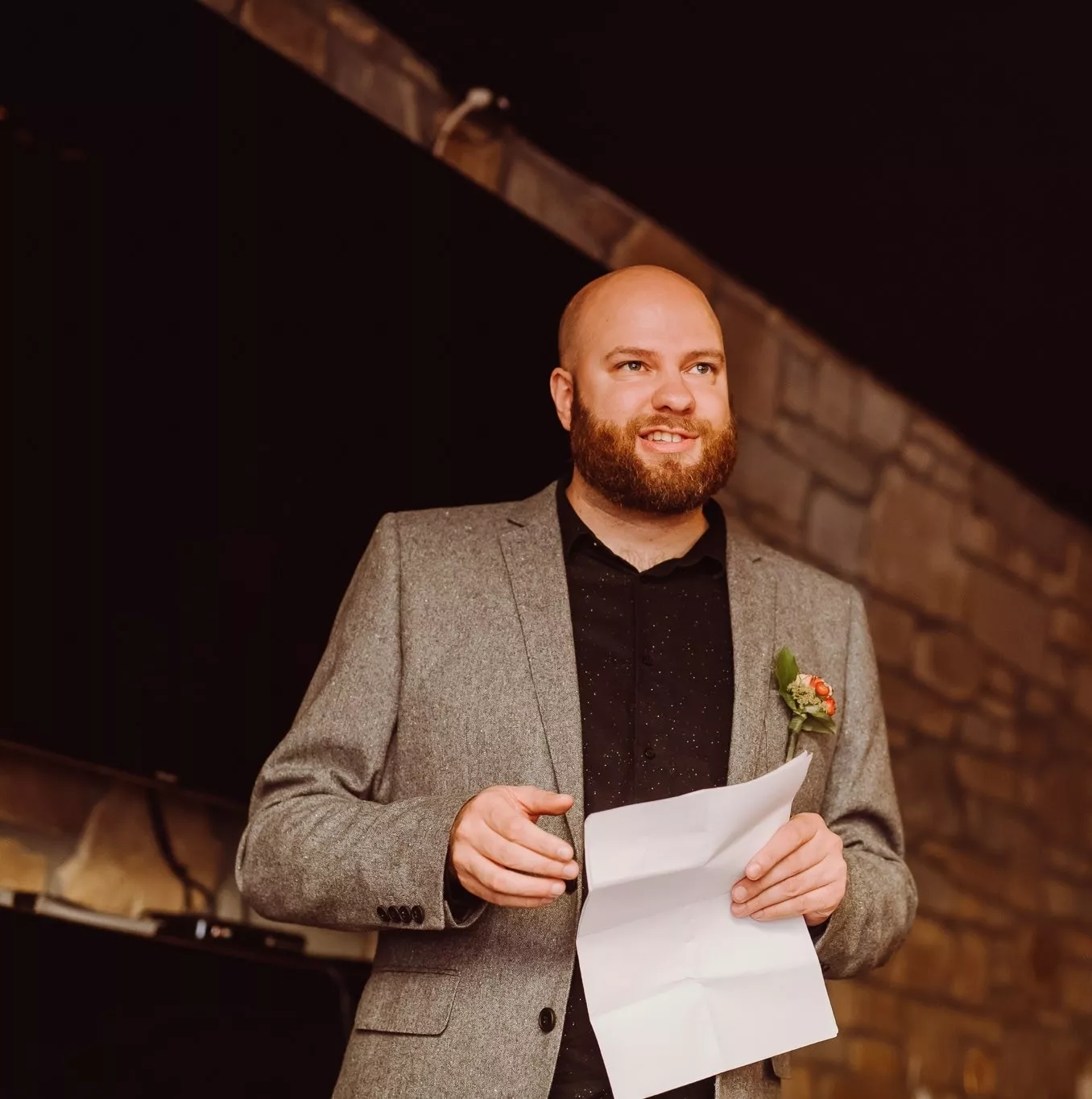Getting your story heard: empowering vulnerable adults through digital storytelling

We all have stories, but not all of them get heard. Aleksandra Kozyra from the EAEA talked to two educators who use audiovisual methods to encourage vulnerable groups to share their experiences and make their voices heard.
“Our learners are people who don’t know each other, who are not proficient at video making, but feel that their voice isn’t heard or struggle with group work,” tells me Łukasz Szewczyk, who uses participatory video and digital storytelling in his work.
We meet in Helsinki, where EAEA participates in a partner meeting for Education by the Way – an Erasmus+ project that analyses different methods of working with vulnerable adults. Storytelling, including digital storytelling, is one of the examples we discussed with the adult educators, who were invited to bring in their own expertise and tools. As Łukasz explains, it brings huge benefits to specific target groups.
“At Cotopaxi, we work with a variety of different groups that are underrepresented, and whose voice isn’t always heard: learners with physical or intellectual disabilities; people who suffered a psychological crisis or have a mental disorder; senior citizens and youth.”
Relations deepen, people open up
“We mainly concentrate on the benefits of being in a group and on developing a set of soft skills. We give our participants a space to meet and by working on how to make a video, they learn how to cooperate, how to tell their own story and how to listen to others,” says Łukasz.
There are other positive aspects as well. As Łukasz explains, advocacy proves to be an important element in the video making process. “Once a group of female senior citizens made a video about how difficult it is to get a spot in a care home, and one of them ended up getting a place,” he says.
Łukasz notes how interesting it is to follow the participants and see the progress they make throughout the course. He has special fondness for a group whose participants have suffered a mental breakdown and as a result of that do not work.
“The first time I worked with them, they were very cautious and didn’t feel safe around us or each other. But little by little, we got to know their personal stories. For example, one of the participants created a video in which he described his psychosis, the crises he suffered, talked about how he sees the world from his perspective. This is an incredible sign of trust towards oneself, towards us and towards the group.
Digital storytelling empowers people
Curious to know more about the methods, I sought out another organisation that empowers vulnerable adults by offering digital storytelling workshops.
“Digital storytelling has a few layers: it can give people with a certain trauma the ability to materialise it and to put it away, to look at it from a different perspective,” tells me Jasper Pollet from Maks.
Maks is a non-profit organization based in the Brussels, offering a wide selection of courses, from basic IT classes to coding. 'Our digital methods are very accessible and have been used with all ages. It often surprises people what they are actually able to make without much effort,' emphasizes Japer.
Based in the neighbourhoods of Kuregem and Molenbeek, both with a large migrant population and frequently portrayed as 'notorious' in the media, alongside teaching digital skills, Maks helps vulnerable youths and adults to bring their own voice to a debate in which they seem to have no place.
“Digital storytelling can actually empower people. Just after the terrorist attacks in Paris and Brussels a lot of our youngsters felt observed by the entire community because they had a migrant background,” says Jasper. “They had something to say about it, they just didn’t agree with the debate that was going on and felt strongly about it. We went to schools in the neighbourhood and we asked them what their opinion was about those things.”
He shares another powerful example: a project that brought forward the stories of women who had been victims of violence. “I haven’t worked on that project,” Jasper specifies. “The great thing about it is that it was for women, by women. This created a very intense, but very tight-knit group of people, sharing their personal stories.”
“The topic was quite wide: some women had run from a war, others had suffered domestic violence, and their experience was hidden behind the walls of their house. While the participants had very different backgrounds, they shared a traumatic experience and that bound them together.”
I wonder: with such difficult topics to explore, aren’t there moments when the participants want to step out of the process? Jasper underlines the key role of trainers and facilitators in making everybody feel safe:
“During that project, there were women who were understandably shy and uncomfortable talking about their experience, but our facilitators were very good at helping them,” says Jasper, adding that the boundaries need to be clear from the beginning. “We create a safe space. We also explain at the beginning that one of the aims is to do a screening, although we can be flexible around some things if they make our participants uncomfortable.”
To screen or not to screen?
Jasper emphasises how important it is to finish the entire trajectory with a screening. “You hear these stories, and then the final product is impressive, and it closes off the entire project.”
The project he has just described to is a prime example of that. As Jasper explains, it ended with a big screening, and while some women made their videos fully anonymous, others were more open in bringing their story forward.
“They invited family and friends who had no clue about what had happened. This was a powerful moment. We then gave the opportunity to some of their male family members to make a story as a reaction.”
Jasper adds that as a result, a few more stories were created, also in a digital format. “It was incredibly touching,” he says.
A screening, however, can be difficult. Łukasz mentions some of the challenges.
“We used to make public screenings: we would invite external guests and host the event at a cinema. We still make the viewings cinema-like, but we started to make some changes.”
Now there is more flexibility around it: Cotopaxi does not show the video to a larger audience if the group does not wish to do so; a screening is made only for the participants of the workshop. Yet even an internal screening can bring painful emotions.
“Once we saw a video that was so moving and difficult for the group that we suggested taking some time and watching it again in three months. But in the end we never did – it was so difficult to revisit, we buried it altogether,” says Łukasz.
“We always try to at least organise a viewing for those who have participated in the process. We show it to a larger group only if that’s their wish. Then they invite their friends and family and we celebrate, even if we don’t necessarily roll out the red carpet!”
Watch some of the resulting videos (with subitltes in English) below:
221
Video created by a mental health group in Participatory Video process run by Cotopaxi Film Workshop Association.
Seniors about themselves
Happy Birthday
Digital story made by one of the participants in the project on domestic violence.
Cruise on my tears
Digital story made by a prisoner about his experiences, within the framework of a project carried out by Maks.


Aleksandra Kozyra is a Membership and Events Officer at the European Association for the Education of Adults and is responsible for organising EAEA conferences and the annual Younger Staff Training. She has previously worked with adult learners as a language trainer in Poland.




